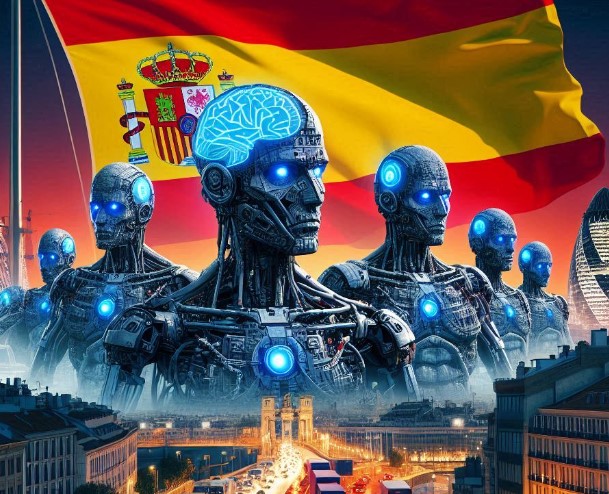This law aims to curb the spread of misinformation and protect vulnerable populations from deceptive tactics.
The Rise of Digital Deception
In the digital age, we have achieved remarkable successes, but not without significant challenges. These include deepfakes – highly realistic, yet fake digital media created using artificial intelligence. People can now impersonate celebrities and influencers in fake advertisements, portray politicians in speeches they never delivered, and create voices that sound human but are not.
This growing tide of AI-generated content is misleading and often difficult to distinguish from authentic content. Such creations pose a serious threat, contributing to the spread of misinformation that endangers the public, democracy, and the reputation of the media. These problems are not merely hypothetical; we have already seen AI throw Europe into disarray.
Spain’s Response
Recognizing the rise in AI deception, Spain passed a bill in March 2025 explicitly requiring the labeling of AI-generated content. Non-compliance is considered a “serious offense” and can result in fines of up to €35 million or 7% of a company’s turnover. This legislation is in line with the EU AI Law and requires transparency for AI systems. Spain is one of the first EU countries to implement strict measures, a clear sign of its commitment to the ethical use of AI.
What must be labeled?
The law covers a wide range of AI content, including: videos, images, and audio files depicting fictional or real people in invented scenarios; text content generated by AI; and graphics and virtual scenes created using AI technology. Labels must be “clear and distinguishable” so consumers can easily identify AI material.
Beyond Labeling
The legislation also provides other important regulations:
Subliminal techniques: The manipulation of vulnerable groups is prohibited. This includes explicit messages that foster a cycle of pressure and potential addiction.
Biometric classification: Companies are prohibited from using AI to predict race, political beliefs, or religion based on physical appearance or voice.
Why? These practices are unfair and often inaccurate, which can lead to discrimination. The goal is to protect our privacy and fundamental human rights.
Who’s watching?
Spain has appointed AESIA – the “Agencia Española de Supervisión de la Inteligencia Artificial” – to monitor AI applications, investigate violations, and take corrective action where appropriate. Spain’s proactive move toward ethical AI governance serves as a blueprint for responsible AI regulation. By emphasizing ethical considerations and transparency, this nation is prepared to mitigate the risks of AI while reaping its benefits. In view of the ongoing development




